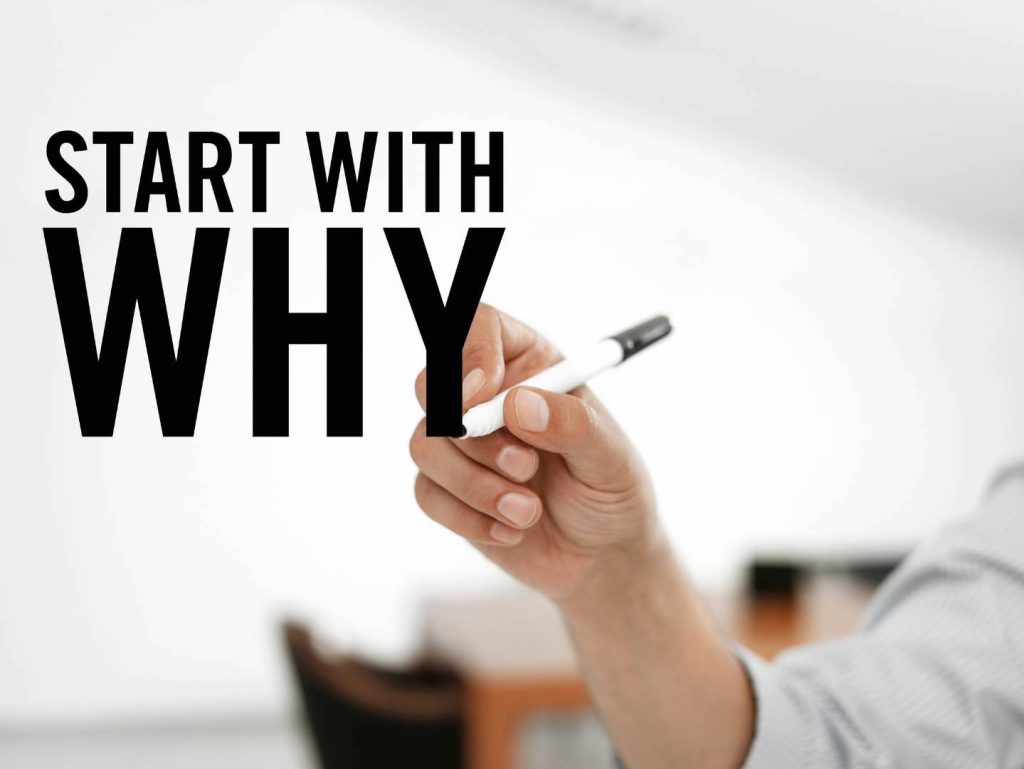Let’s be honest, people can be difficult. If you’ve ever encountered someone being rude or obnoxious, what’s your first thought? I doubt it’s a positive one. But why would it be? People’s behaviour can offend, upset, and anger us.
It’s understandable that your initial reaction comes from a place of disgust. Mine would too.
As human beings, we judge others for many reasons. Some relate to our survival, how we fit in, and find our place within the world. If we witness inappropriate behaviour, we compare, and decide to not be like them.
But rather than judging, can we retrain our minds to think differently? Can we be compassionate to others? Being kind to our friends and loved ones is often easy, but what about strangers? Your difficult boss? Or that person who was rude to you at the coffee shop?
It’s not easy. But it is possible.
In this post, I’ll explain the how to be compassionate to others.
Let’s get right to it.
Love Yourself First

Cringe, right? It’s funny, most people can be kind and loving towards others. Yet, when it comes to themselves, things change. Can you relate? Are you self-critical and hard on yourself?
I used to be the same.
I’d set unrealistic standards, fail to reach them, then berate myself. The fear of starting again paralysed me, so I’d procrastinate. This cycle went on and on. But I broke out of that behaviour as I learned to be kinder and more understanding towards myself.
There are many reasons people struggle with self-compassion. Some think it’s weak and self-indulgent. It may relate to a lack of self-worth, causing you to feel undeserving of love. Which could have stemmed from difficult life experiences, bullying, or abuse.
Whatever the reason, know this. It’s harder to be compassionate to others, if you have little towards yourself. And there are consequences:
- If you don’t love yourself, you may seek it elsewhere, in the wrong places. But when you have inner contentment, you’ll have the confidence to look for healthy relationships.
- Resenting yourself can lead to you building up a wall. Causing you to become cold and detached. Closing your heart like this, will prevent it opening for others. When you can’t connect, empathise, understand, and accept yourself, how can you do it with other people?
- Cultivating compassion takes a lot of emotional energy. If you don’t take the time to nurture yourself, you’ll have very little to give.
- When you’re overly self-critical and judgmental, you might project it onto others. Causing you to view them with the same harsh lens. Further restricting your capacity for kindness and empathy.
See what I mean?
Cultivating inner love enables you to extend it outwards. Need some help? Check out my post How to Be Compassionate Towards Yourself.
Practice Mindfulness
My previous counsellor introduced me to mindfulness at age 24. For years I had been suppressing emotions. They were trapped and causing me harm. During my first session, I broke down.
The counsellor advised me to stay with the pain and embrace it. He suggested visualising the emotion in front of me. I pictured the word sadness and allowed myself to feel it fully.
From that day, everything changed.
My awareness grew and I was able to confront my emotions. Instead of suppressing, hiding, or distracting myself from them. Mindfulness was a tool I could use to regulate my mind and body. And you can learn to do the same.
There’s no secret to it. Mindfulness is about paying attention to the present moment. How does that help you to cultivate compassion?
You learn to recognise and observe your own thoughts, feelings, and emotions.
As you develop self-awareness, you become more in tune with your mind and body. Spot negative habitual thinking. And allow yourself to feel and release emotions in a healthy way. This inner connectedness allows you to relate to others’ suffering with more empathy.
Your increased awareness empowers you to recognise moments when you lack compassion. Both for yourself and others. And having better emotional regulation means you can respond to challenging situations.
It also enables you to look after yourself better. As mindfulness meditation has many tremendous benefits for your wellbeing and nervous system. Giving you more energy, space, and capacity for kindness.
There is also a meditation practice called metta. Where you cultivate compassion like a skill. Your brain will form new neural pathways. Increasing your ability to radiant love inwards and outwards.
Why not give it a go? You can learn more about the practice in my post What is Mindfulness?.
“Be kind, for everyone you meet is fighting a hard battle.”
― Ian MacLaren
Ask “Why?” to Find the Angle of Compassion

Judging somebody is easy. Our fleeting, intrusive thoughts take no effort. Do you know what’s not easy? Taking the time to understand the reasons behind somebody’s actions. How do you do that? Ask “Why?” to find the angle of compassion.
Let’s use an example.
You’re on a busy subway. It’s been a long day and you’re desperate to get home. A stranger gets on at the next stop. They look drunk or on drugs. They stumble around and walk into you. In a slurring voice, they mutter something. Their clothes are dirty and have a stench.
You think to yourself “what a mess, how could anybody get into that state?”. You shudder and fester in disgust for the rest of the ride home.
What if you try to cultivate compassion instead?
Ask “why are they intoxicated?”. Well, they could be homeless. “Why would they be?”. Perhaps, they suffered a traumatic upbringing, experienced abuse, and never received love. Now they have nothing. What must that feel like?
Now you have your angle of compassion.
Of course, it could be a number of other reasons. But whatever the truth is, it won’t be pleasant. We all have emotional needs. People just want to be happy. They want to be loved and free from pain.
So, the next time, someone upsets, offends, or irritates you, ask “why?”. Find the angle of compassion. It’s understandable if you can’t do it in the moment. But how about when you get home? Reflect on it and write your thoughts down.
This doesn’t mean you have to tolerate or accept inappropriate behaviour. But at least try to develop a greater understanding of it. Doing so, can open your mind and heart towards others.
Do Acts of Kindness
The world can be a hard place. We all know this. Wars, famine, and poverty still run widespread. We’re some of the lucky ones, not having to deal with such hardships. But even so, there are others struggles we will encounter.
None of us can escape our body deteriorating. We all must earn money and work. Face the pressures of society, whilst navigating our relationships. Obstacles and challenges will come, no matter who you are, or where you live. The Buddha had it right when he said, “life is suffering”.
“Ok Chris, this is all sounding a bit depressing”.
Hold your horses.
Hear me out. The Buddha didn’t say these words to depress his followers. It was to enlighten them to the existence of suffering. To acknowledge and accept it, rather than deny or hide from it. And when you do, you can make life better.
Not just for yourself, but also for those around you. Along your journey, do acts of kindness, to ease other people’s pain and give them hope. How? That’s up to you.
You could ask a homeless person what they need or hear their story. Pay somebody a compliment or smile, it doesn’t cost anything. Offer to support someone. Or volunteer for a charity or organisation. Give your time, energy, and dedication.
There are so many ways you can help others. Make your time on this planet count. Contribute. Pass on the love and good vibes. At the end of the day, we’re all in this together. Trying to make it through as best as we can.
Why not support others along the path?
“How do we change the world? One random act of kindness at a time.”
― Morgan Freeman
Listen with Intention

I have quite a restless mind, which tends to overthink. I’ve improved it over the years, thanks to mindfulness practice. But I still catch myself getting preoccupied with tomorrow’s tasks and goals. As a consequence, when people talk to me, I can drift off.
Can you relate? If so, you know what I mean. It can be easy to miss what other people say. Important details. Meaningful moments. Making it difficult to relate and empathise.
When I did my counselling training, we learned how important active listening is. It’s a masterful skill. One I had no issue with when listening to clients. But in my personal life, I began to notice more how my mind would wander off.
So, I honed this skill and became a better listener.
What is active listening? And how can it help with compassion?
When you actively listen:
- You are present and engaged with the speaker. Giving eye contact and using open body language.
- You patiently listen, with openness and warmth.
- When listening, you pay attention to their body language, movements, tone, and emotions.
- There is no judgment. You take the time to understand their perspective, experience, and feelings.
- You respond appropriately. And ask open ended questions to explore further.
- You paraphrase and reflect back what they say, to clarify your understanding.
“Erm Chris, I’m not studying to become a counsellor”.
It doesn’t matter. Active listening is a skill for life. One that allows you to understand, appreciate, and value the experiences of others. Opening your heart and mind. Making it easier to relate, connect, and empathise.
And as you learn more about them, it can reduce misunderstanding and conflicts. You may be able to find the angle of compassion. Even though it felt impossible at first. Try it and see for yourself.
You Can Develop Compassion
Yes, people’s behaviour can be challenging, disrespectful, and hurtful. But when we cultivate compassion, it also benefits us. Because instead of festering in resentment, anger, sadness, or frustration, we can look at the broader picture.
Giving us a sense of understanding, acceptance, and peace.
Don’t get me wrong, this isn’t easy. Trying to be compassionate to those that hurt us can feel impossible. That can be a long process that you might never resolve. And feeling compassion for difficult people is challenging within itself.
But it is possible.
Compassion like anything else, can be developed. In this post I explored how to do so.
Let’s recap.
Work on loving and accepting yourself first. Practice mindfulness to build awareness of your thoughts and emotions. Ask “why?” to find the angle of compassion in difficult situations. Do random acts of kindness throughout your day. They don’t have to be massive. A smile or a compliment go a long way.
Finally, through active listening, you strengthen your ability to connect and support others.
So, the next time someone is being difficult, pause. Take a deep breath. You don’t have to tolerate inappropriate behaviour. But see if you can respond with patience, calmness, and empathy. If it didn’t happen in the moment, that’s ok. You’re a human being with feelings.
Take the time to reflect on the events at home. Find the angle of compassion and make peace with them.
Who was the last person you found it hard to be compassionate towards?
I’d love to hear your stories in the comments section.
Take care of yourselves,
Chris from Mindful Way to Be

